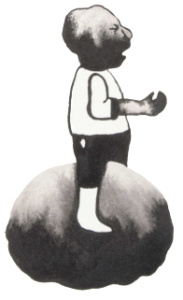 Fruits of the poisonous tree
Fruits of the poisonous tree
The Court of Haarlem has acquitted the (according to the AIVD) ‘leaking’ AIVD official who would have provided Dutch newspaper De Telegraaf with information about Iraq. This acquittal is mainly based on the journalistic right of non-disclosure. The Dutch General Intelligence and Security Service (AIVD) had bugged various De Telegraaf journalists and had thus obtained evidence against the AIVD official. According to the Court these tapes are ‘fruits of the poisonous tree’. The recordings are illegally obtained evidence because there are no exceptional circumstances that justify an infringement of the reporter’s privilege.
Most Important Considerations
Below are the most important passages from the judgment (in Dutch):
“With regard to the importance of the journalistic right of non-disclosure the Court considers as follows. A free press is a necessary condition for the good performance of a democratic state under the rule of law. The journalistic right of non-disclosure is now generally accepted, leaving aside exceptional circumstances – which have not become evident in this case. The conscious undermining of this right by unlawfully monitoring the telephone conversations made by the journalist, with the sole objective of retrieving the source, is in conflict with this right to such an extent that also the source itself is entitled to rely on the unlawfulness of the evidence thus obtained. In this respect it is not important whether the source meets the so-called whistleblower criterion, since from the nature of the case this adjudication can only take place after the unlawful violation of the journalistic right of non-disclosure, which right would become substantially illusory if the illegally obtained evidence could actually be used against the source.
Therefore, the Court arrives at the judgment that the evidence that has ensued from the illegal monitoring of [party involved 1] will also be regarded as illegally obtained in the case against the suspect. From the telephone tap of [party involved 1], more specifically from the telephone conversation of 15 May 2009 by [involved party 1] with the suspect, the possible involvement of the suspect and fellow suspect [fellow suspect] in the charges has appeared. This telephone conversation has also been the basis for the observation of the house of the suspect and the fellow suspect and the subsequent arrest and search of their house. In view of these circumstances, the Court is of the opinion that all evidence against the suspect and his fellow suspect, collected in the investigation of the AIVD as well as in the criminal investigation, are ‘fruits of the poisonous tree’ and must for this reason be ignored. As a result, there is insufficient legal evidence to arrive at a conviction. In view hereof, the suspect should be acquitted of all charges.”
Tenacious Dutch Government
We have already published articles on the Media Report website several times (in Dutch) about this soap opera between the AIVD and De Telegraaf and the tenacious attitude of the AIVD and the Dutch government. This judgment strengthens the question we asked before on Media Report (in Dutch) whether the supervisory commission of the AIVD, which has ruled earlier that the AIVD had every right to monitor the De Telegraaf journalists and thus ignored the opinion of the Court of Appeal (in Dutch), is sufficiently independent and whether the Minister has really acted wisely by maintaining that she was right despite the judicial rulings that prove her to be wrong (see here – in Dutch-, at the bottom).

